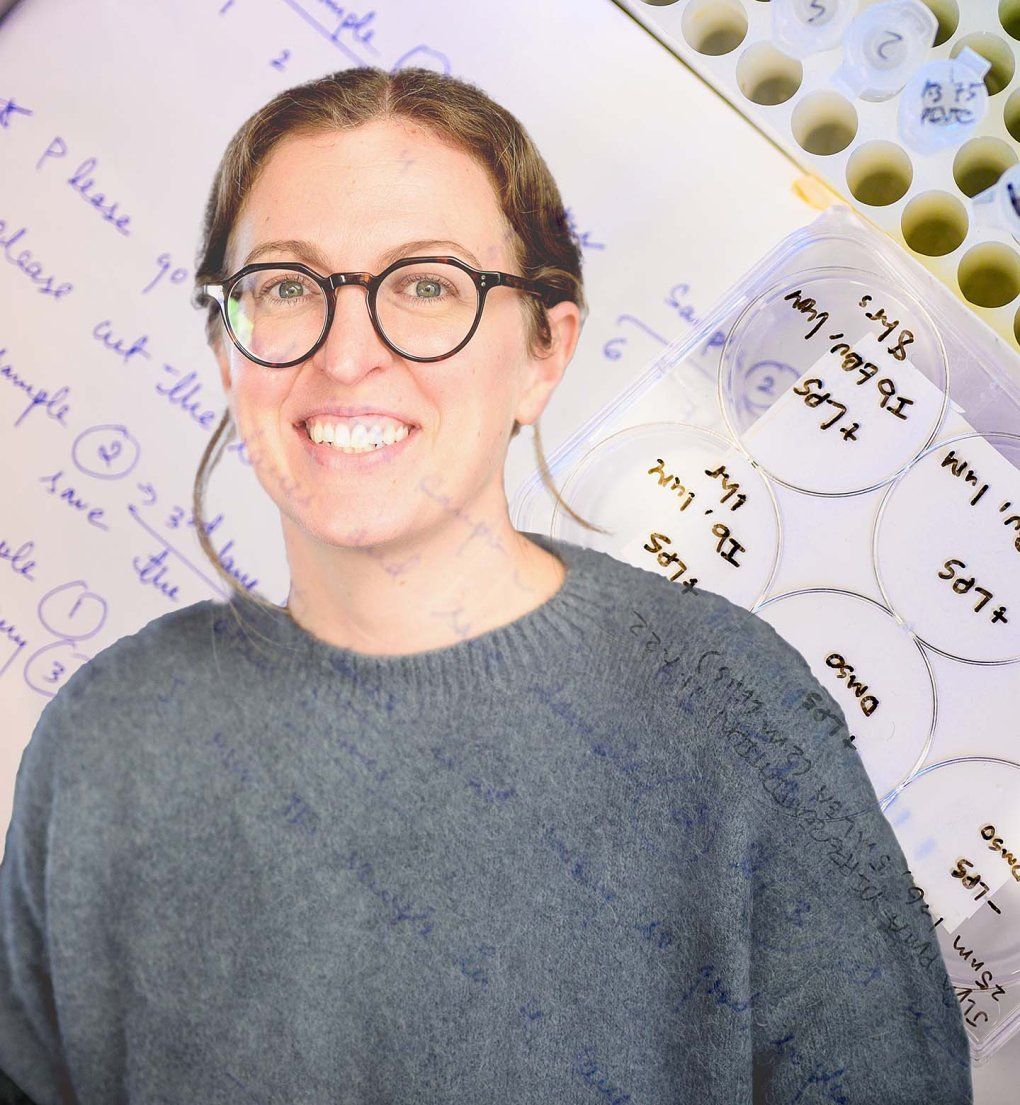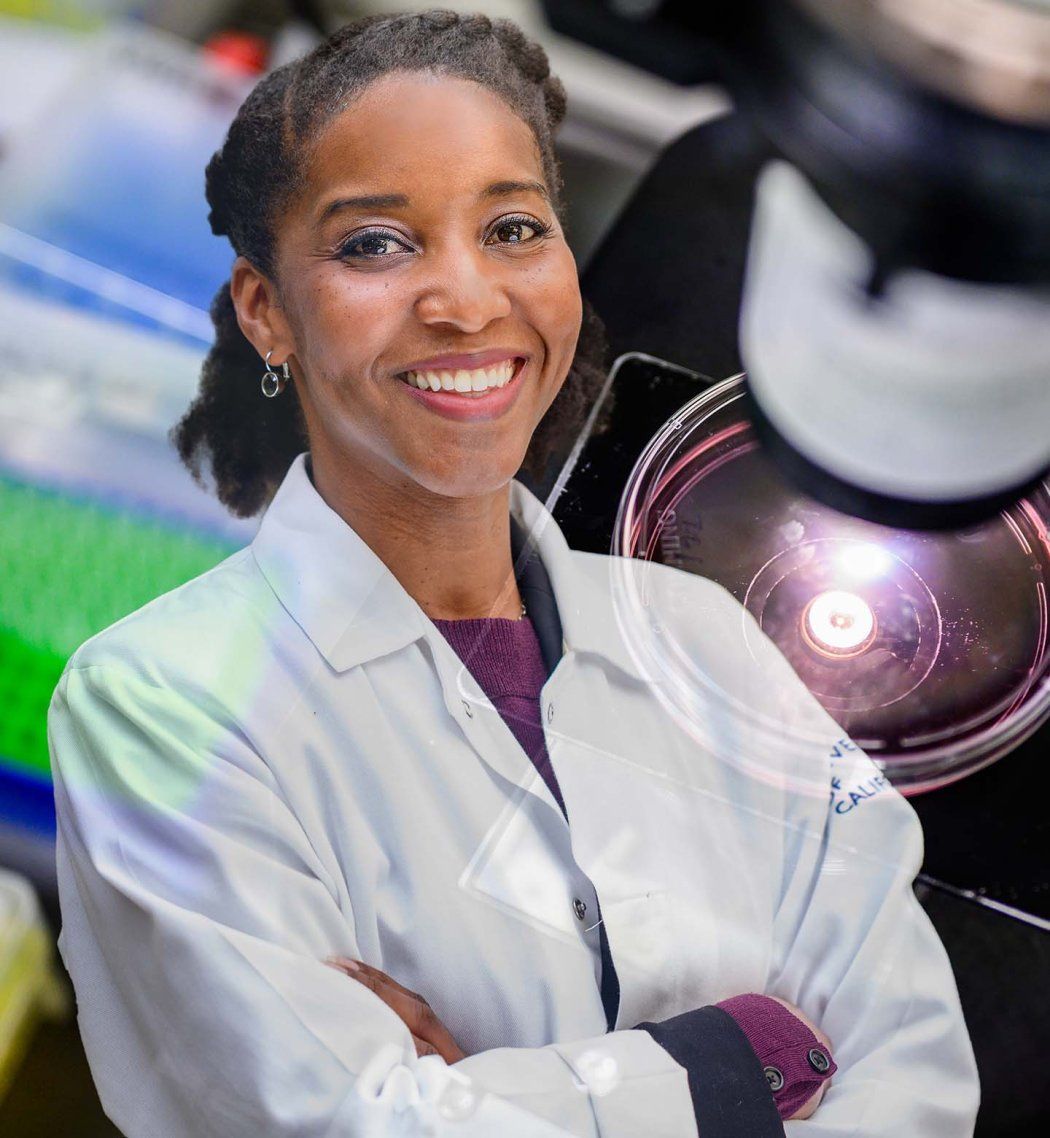This story is one in a series marking International Women and Girls in Science Day. Join us as we celebrate some laboratory leaders taking research to new heights.
When we inhale an airborne virus, our lung cells take on the role of immune system first responders. Catera Wilder, PhD, an assistant professor of bioengineering and therapeutic sciences, joined the UC San Francisco faculty in 2022 and studies the molecular details of this response and how it can go awry, causing the body to damage its own tissue and cells.
Your background is biomedical engineering. How did you end up in immunology?
My mom is a chemical engineer. She was my inspiration to pursue science as a career. I chose biomedical engineering because I was interested in impacting people’s lives through improvements in health. As an undergraduate at the University of Missouri, a summer research experience gave me a taste of bench work. It wasn’t until a postdoctoral fellowship at UCLA that I got interested in immunology.
What’s the focus of your current research?
When the cells lining your lungs detect a virus or bacteria, dozens of molecular signals are sent through and between cells to trigger an immune response to fight off the pathogen – that’s generally a good thing. But the same signals can lead to dangerous lung inflammation, which is when the body can overreact and mistakenly damage itself. No one knows what causes this. My lab studies how certain molecules might trigger inflammation in lung cells, with the ultimate goal of being able to predict inflammation before it occurs.
Are there clinical implications?
Absolutely. If we can determine the signals that trigger this excessive inflammation, we might be able to identify patients who are at risk of developing complications during infections. Then, we can develop new tactics for preventing and treating that inflammation.
How does your engineering background inform your approach to immunology?
I use mathematics in my work. For instance, I capture many time points in the lung cells’ response to viruses. At each time point, I measure the levels of dozens of different antiviral and inflammatory molecules and genes. This generates a huge amount of data, and I use mathematical and computational modeling to identify patterns and illustrate how signals in lung cells might be used to predict excessive inflammation.
What excites you about working at UCSF?
I’m really looking forward to growing my lab and seeing younger scientists get excited about my ideas. Helping other people grow as researchers pushes me forward even when the science gets challenging.

NEXT UP:
If Immunity Is Innate, What Impacts Our Ability to Fight Infections?
Balyn Zaro, PhD, investigates genetic diversity in the immune system.
